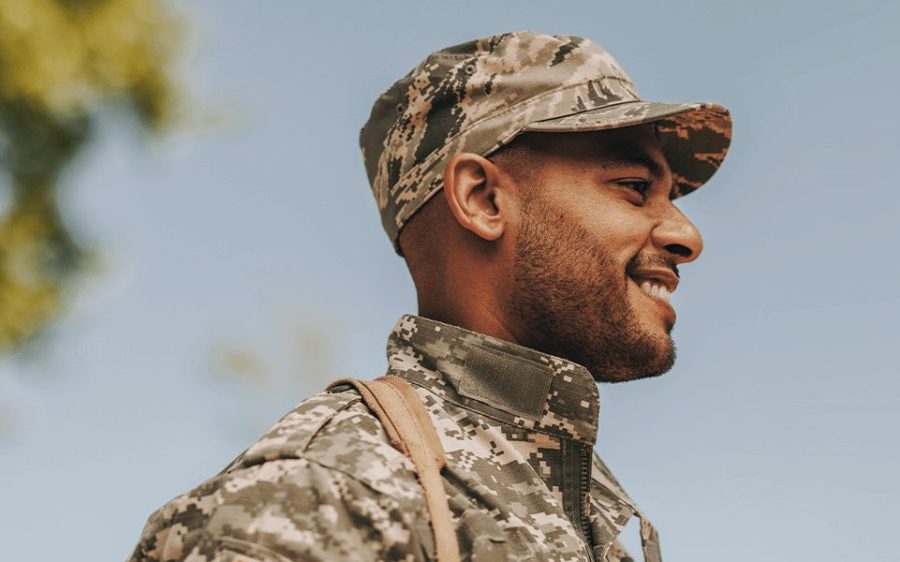
Military service is a challenging and rewarding life path that brings out the strength and tenacity in recruits. Whether you've just enlisted or are getting ready for your next tour of duty, it's critical to prepare a solid mental foundation alongside combat readiness. With the right psychological support and baseline skills at the ready, you can make the most of your time in the military and earn honor for yourself and your country.
Basic training is your first taste of military life, and it's likely very different from the home life you're used to. While your drill sergeants will have your best interests at heart, they'll push you to perform at your absolute prime. Build your fortitude by following five critical steps:
As of 2022, the United States Army has mandated the Army Combat Fitness Test (ACFT) to gauge recruit endurance, agility, functional strength and readiness for duty.
For army personnel aged 17 to 21, these fitness tests include:
If you arrive to basic training unprepared to meet these standards after a few months of strenuous training, you put yourself at risk of injury, exhaustion and reduced self-confidence. Protect yourself from this by hitting the gym regularly before basic training, working on strength training and cardiovascular endurance. You'll be far better prepared to deal with possible homesickness and other mental challenges if you're keeping up physically.
Mental resilience is essential for making the most of basic training, persevering through physically demanding exercises and successfully moving on to specialized training (AST). It's your ability to adapt and cope in challenging, stressful situations and helps you in all areas of life, including employment, education and general mental health. You can build resilience by:
Before starting military training, cut ties with any alcohol or narcotic dependencies, and seek out professional addiction treatment for detox programs, inpatient care or sober living facilities.
If you're already in recovery, consider joining support groups like Narcotics Anonymous (NA), Alcoholics Anonymous (AA), LifeRing, Refuge Recovery or SMART Recovery to build tools you can use to stay clean and sober during training. Remember that the military also has resources, such as the Army Substance Abuse Program (ASAP), that can support your recovery both during and after service.
Acknowledge that your social context is about to change significantly. Instead of friends, family and loved ones, you'll be sharing a living space and interacting with fellow trainees. Of course, you'll be able to call your loved ones occasionally and write and receive letters.
Feelings of isolation are normal as you get to know your peers. Be open to forming new friendships — your fellow recruits will understand the challenges of adapting to military life, providing encouragement and empathy.
Before and during your training, set achievable short-term goals for both your mental health and your physical development. These incremental wins will foster a sense of accomplishment and help you maintain motivation amidst the voices of strict superiors and any lingering anxieties about falling short. As long as you tenaciously keep trying despite setbacks and display earnest motivation, you've got what it takes to ace boot camp.
Although people often refer to basic training across all military branches as “boot camp,” it's most accurately used to describe the initial training recruits get when joining the U.S. Marine Corps (USMC). Boot camp focuses more on the essentials of embodying USMC values and drills, so discipline, etiquette and focus are critical. The USMC boot camp works on fortifying the characters of new recruits and is sometimes seen as more authoritarian.
To mentally prepare for boot camp, follow the same steps and basic training mental preparation. If you're particularly apprehensive about the authoritarian reputation of Marine Corps boot camp, keep these tips in mind:
After specialized and on-the-job training, you'll be deployed for active duty. The specifics vary between which branch of the military you've enlisted with, although all deployments share some fundamental features. To best prepare yourself for active duty, consider the following tips:
Mental preparation is more than emotional fortitude. Research the location you'll be staying at, learn as much as you can about the mission's objectives, get to know your unit and inquire about the duration of your deployment.
Use the time you have before shipping out to enjoy quality time with your family and friends. You'll likely spend several months apart, so tell them what's on your heart and make lasting memories together. Thoughts of loved ones are an excellent way to keep grounded and emotionally strong during uncertain, challenging times.
Depending on your station and duties, you may encounter psychologically challenging situations including conflict. These periods of distress can aggravate preexisting mental health problems, including post-traumatic stress disorder (PTSD), anxiety and depression. Speak to a therapist and get to know yourself, your priorities, your fears and your triggers so you can face them head-on during deployment.
At Diamond House Detox, we understand that new recruits, deployed soldiers, reserve personnel and veterans alike face unique psychological challenges, and we're here to help. Our team of expert therapists and health professionals have decades of combined expertise treating co-occurring mental health and substance use disorders, including PTSD, depression, anger management and anxiety.
We believe it's critical that military personnel have access to specialized care because of the extraordinary obstacles they face both during and after service. That's why our military-specific addiction program is designed and run by seasoned veterans who know what you're going through from firsthand experience. We're also one of the few treatment facilities in Northern California that offer inpatient Incidental Medical Services (IMS) for exceptional, holistic care in recovery.
Whether you're looking for a safe place to detox, overcome trauma from deployment or recover from substance dependency, Diamond House Detox is here for you. If you're ready to leave your pain and struggles behind and forge a new path with expert support, take the first step and speak with us today.